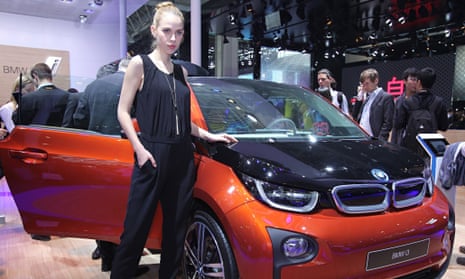Ideally we’d sit down together and pick you out a lovely green car, like the passive consumers we’ve been taught to be (car dealership Motorparks has a handy guide to alternative vehicles). But electric vehicles (EVs) are never that simple.
The Guardian’s product and service reviews are independent and are in no way influenced by any advertiser or commercial initiative. We will earn a commission from the retailer if you buy something through an affiliate link. Learn more.
Instead we need to look deep into your soul. Who are you? Why are you too grand for mass transit, where you can share the emission burden? What type of driver are you? Do you drive the short journeys EVs can cope with? After all, “range anxiety” (worrying about running out of juice) is the bête noire of EV drivers.
We can’t be too Pollyanna about them. They have flaws. The “zero emission” rating, for example, only applies to the tailpipe emissions. Given that you need to plug your car into the grid, you are still responsible for upstream emissions through power generation, and we are still far from a decarbonised electricity grid.
A Union of Concerned Scientists Report from 2012 found that EVs were a “good choice” even in areas where the power grid was dependent on coal. However, there are so many variables. A recent Carnegie Mellon University study shows that in extreme weather conditions EVs are less of a good choice. Their range can drop from 75 miles to just 45 due to using battery power to heat or cool the cabin, while petrol cars’ waste heat warms passengers. Do you need a lot of heat?
Also, can you develop an interest in battery technology? You need to care. Lithium ion batteries (a catch-all term for at least six types of battery chemistries) are a big part of the EV jigsaw. They’re developing fast, but there are still trade-offs, including how they will be recycled. Nissan’s project 4REnergy claims to give spent batteries from EVs a second life, helping to generate solar power.
Private cars are responsible for 12% of the UK’s greenhouse gas emissions; globally, transportation accounts for a fifth of oil usage. We know that we need to, as the Guardian campaign says, Keep It In The Ground to have a fighting chance of preventing warming above 2C. In fact, we need to leave around 260bn barrels of oil there. To keep on keeping on is insane.
With an EV you may feel quite lonely: EVs haven’t taken off, though by 2021 stringent EU regulations on emissions will require big carmakers to meet range average emissions of 95g/km, so expect many more. The key is to agitate to decarbonise the power grid. So prepare to become a campaigner as well as an EV driver. There’s no room for passengers.
Green crush: trainers made from rice husks

Shoes are an eco design challenge. They’re complex constructions made from multiple parts which have to endure stress. For mass production this often means using standard plastic and leather supply chains with all their ethical drawbacks. But Marks & Spencer has ensured that 50% of the materials in its Footglove Earth suede trainer range are now sustainable or recycled. The ‘double rice rubber’ soles are really innovative: 700m pounds of rice are harvested worldwide every year, and this ‘rubber’ is made from those waste husks. The range is proof positive that fashion can be mass produced, sustainable, affordable and look good, too. Other high-street brands need to up their game. Footglove Earth trainer, £55, from marksandspencer.com
Greenspeak: Speedo diplomacy {spi:dodīplomasi} noun

Term coined by endurance swimmer Lewis Pugh, whose heroic swims in Antarctica have captured Russian imaginations and may break political deadlock over Southern Ocean marine reserves.
If you have an ethical dilemma, email Lucy at lucy.siegle@observer.co.uk
Follow Lucy Siegle on Twitter @lucysiegle
Follow the Observer Magazine on Twitter @ObsMagazine

Comments (…)
Sign in or create your Guardian account to join the discussion